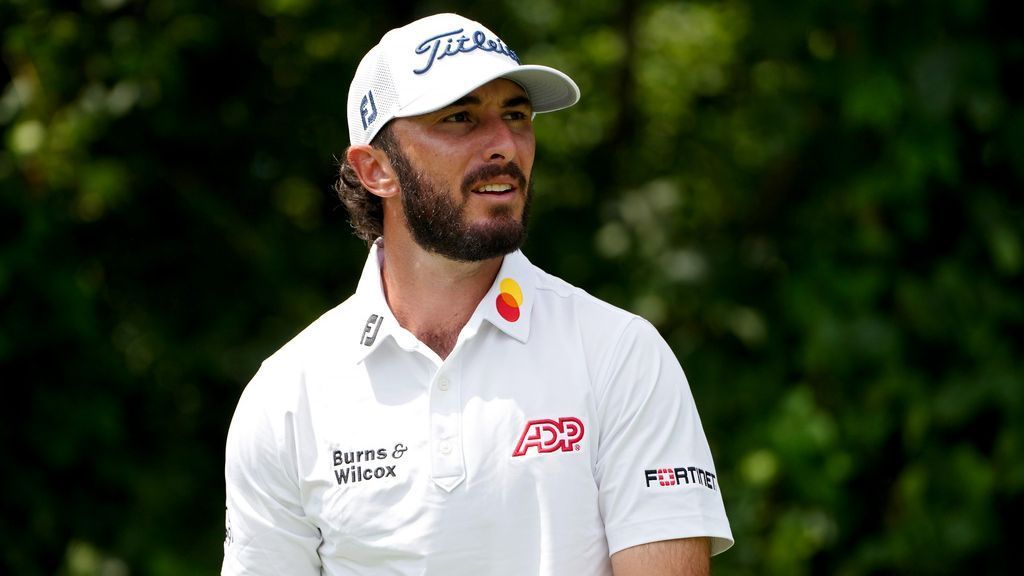Two years in the past, underneath a cloudless sky in north central Louisiana, Doug Williams and Michael Vick met on the soccer discipline at Grambling College’s Eddie G Robinson Memorial Stadium to replicate on the NFL path they helped blaze. In 1988 Williams led Washington previous Denver in Tremendous Bowl XXII, breaking contemporary floor: he was the primary Black quarterback to begin in a Tremendous Bowl and completed the sport as MVP. In 2001 Vick was the highest decide within the NFL draft. All had been landmark firsts for Black quarterbacks – and so they didn’t cease there.
“Go searching this league now,” Williams informed Vick in his cussed Louisiana drawl. “I might be mistaken, however within the subsequent 5 to seven years? Half of the quarterbacks on this league gon’ be Black.” In his day Williams was well-known for his deep photographs – however he may nicely wind up three years lengthy of this mark.
When the NFL regular-season started in September, Black quarterbacks made up a document 15 of the league’s 32 starters; that included three – Carolina’s Bryce Younger, Houston’s CJ Stroud and Indianapolis’ Anthony Richardson – who had been taken with the three of the primary 4 picks within the 2023 draft. The historic milestones stamped the daybreak of the Black quarterback period – a heady time that formally kicked off when Kansas Metropolis’s Patrick Mahomes met Philadelphia’s Jalen Hurts within the 2023 Tremendous Bowl. Now the 29-year-old Mahomes, bidding for a 3rd straight Tremendous Bowl title, tasks as the best QB of all time within the eyes of many – although he’s solely been beginning for the previous seven seasons. Dak Prescott, the league’s highest-paid participant, is the face of the Dallas Cowboys, America’s crew. Final 12 months, Baltimore’s Lamar Jackson received his second league MVP. The Black quarterback is professional soccer’s main man.
Now not does information of a Black quarterback being named a starter carry questions on whether or not the fanbase – or previous that, America – is prepared. He simply takes the sphere. The sport wasn’t at all times so simple; that a lot is made plain in a pair of current tasks inspecting the Black QB’s landing into the mainstream.
In The Nice Black Hope, historian Louis Moore seems to be again on the 1979 regular-season conflict between Chicago and Tampa Bay – the primary to characteristic two opposing Black beginning quarterbacks in Williams, the historical past maker, and Chicago’s Vince Evans, who was in the end denied a good probability to comprehend his potential. Moore, a professor at Grand Valley State College, digresses from the Chicago-Tampa recreation to look at the gamers and processes that yielded this change-making contest; CBS billed it as The Battle of the Bombers. Moore calls it “one of the vital monumental contests in NFL historical past, a promissory word that at some point issues would change within the recreation and in society.”
In the meantime, in a three-part Prime Video docuseries, Evolution of the Black Quarterback, Vick crisscrosses the US to think about the total sweep of this lengthy arc of progress – from Willie Thrower, the NFL’s first Black QB, to 2023’s prime decide, Younger. It’s a narrative filtered by Vick’s lived expertise, which edged from consequential to controversial and again once more. In 2007, Vick noticed his profession interrupted after pleading responsible to his position in a canine combating ring. After serving 21 months in federal jail and submitting to a protracted apology tour guided by the Humane Society, Vick reemerged in Philadelphia a extra polished passer on the way in which to being named the comeback participant of the 12 months in 2010.
Vick’s affect, right down to his activate the Madden NFL online game cowl as a one-man cheat code, by no means escapes the varied array of quarterbacks he interviews for the collection. “I used to be an oddity, I used to be an odd cat,” says Steve Younger, the white, Mormon southpaw scrambler who carved out a Corridor of Fame profession with San Francisco. “However watching you play, it was like: ‘That is my tribe. These are my guys.’”
For so long as the ahead go has been a staple of soccer technique, there have been questions on whether or not a Black man may throw it. Black quarterbacks had been written off as mentally inferior and, most frequently, redeployed as protection backs. In Evolution, Deion Sanders – the Corridor of Fame cornerback turned faculty soccer head coach – reveals he performed quarterback in highschool earlier than he was pressured right into a defensive conversion at Florida State. For many of NFL historical past, the league’s soccer knowers betrayed little creativeness, outright dismissing Black passers’ prevailing knack as throwers and scramblers – “a loaded time period,” Moore writes. They had been accorded slim margin for error relative to white pocket passers who ran the performs as drawn up, for higher or worse. Whereas the white determination makers, media and followers discovered it straightforward to miss professional soccer’s intractable racial bias, Black followers couldn’t see previous it.
The primary episode of Evolution features a sketch from Richard Pryor’s 1977 TV selection present by which he stars because the US President. On the time the thought of a Black commander-in-chief was as far-fetched as a Black QB who will get the keys to an NFL franchise, so it figured that Pryor would be a part of the dots:
“I wanna know whatchu gon do about having extra Black brothers as quarterbacks within the Nationwide Soccer Honky League,” a militant from Ebony journal asks within the sketch.
“I plan to not solely have a number of Black quarterbacks,” Pryor began, “however we gon have Black coaches and Black homeowners of groups. So long as there’s gon be soccer, [there’s] gon be some black in it someplace. As a result of I’m bored with this mess that’s been happening. Ever for the reason that Rams removed James Harris, my jaw’s been uptight – you recognize what I’m talkin bout? We gon get down on the case now.”
However the place Black coaches and executives are nonetheless combating for house within the NFL regardless of proving no worse than their white friends, and Black possession is a tiny and largely uninfluential membership dominated by Magic Johnson, Lewis Hamilton and different well-to-do sports activities figures, Black quarterbacks are plain. The fashionable NFL recreation favors passers who throw and run – and doesn’t discriminate in terms of the pores and skin shade of those QBs. “I keep in mind turning the PlayStation on and seeing the quilt athlete on the display screen and being like, I wanna be that man. I wanna be [Vick],” says Buffalo Payments quarterback Josh Allen, the white double risk QB who covers the 2024 version of the Madden online game. “I wore your cleats in Pop Warner.”
When Black quarterbacks had been first turning into accepted as starters, groups would usually have a white quarterback as a backup, simply to reassure some sections of their fanbase “traditions” had been being upheld. However now, the dedication to the post-racial fashion of play runs so deep that groups signal Black QBs to complement Black starters and provides them loads of runway to fly or crash – an method that was validated when Andy Reid, the dean of NFL coaches, signed Vick out of jail to help Philadelphia Eagles starter Donovan McNabb. Gamers like Tyrod Taylor and Tyler Huntley stay a actuality their forebears may have solely dreamed of: Black QBs who’ve cast lengthy – and profitable – careers as veteran backups. On his media tour to advertise the docuseries, Vick has been at pains to credit score the trendy NFL as a benevolent drive for progressive beliefs. However his pioneering interview topics in Evolution by no means fail to remind the viewer of the great particular person efforts it took to succeed in this level.
Vick’s faculty reunion with Williams was fraught with significance, which doesn’t translate as nicely on display screen because it does in Moore’s e book. A traditionally Black faculty, Grambling State College did greater than any establishment to make the Black quarterback an American staple. In Nice Black Hope, Moore remembers how coach Eddie Robinson dedicated to creating a quarterback for the NFL, ditching his run-option schemes for a extra pro-style passing offense predicated on timed routes that required QBs to learn the breadth of the sphere. He recruited former professionals on to his teaching workers to drill the rudiments and nuances of the place – and succeeded. Earlier than Williams, a basic pocket passer, Grambling produced Harris – the Pryor favourite who guided the Rams to the 1974 NFC Championship on the way in which to turning into the primary Black QB ever named MVP of the Professional Bowl. The sport doesn’t get to the place it’s right this moment with out Robinson, who died in 2007.
However at the same time as Black quarterbacks have gained acceptance into probably the most symbolic management place in American sports activities, some issues needed to give within the discount. Black quarterbacks backpedal from going full LeBron James and utilizing their lofty platform to name out institutional racism in and round their sport, lest they offend their billionaire white bosses, flip off followers and find yourself banished from the league alongside Colin Kaepernick. (“It’s onerous once you don’t get to exit by yourself phrases,” Kaepernick tells Vick.) College of Nebraska quarterback Dylan Raiola, who’s of Italian and Polynesian descent, pushes style to the acute together with his sartorial cosplay of Mahomes.
Even Vick appears to shrink from his legacy because the NFL’s ceiling-shattering Black quarterback, not least as a result of there are animal lovers who haven’t forgiven him for launching Unhealthy Newz Kennels. Whereas Vick continues to be villainized by a racial lens, Brett Favre maintains hero standing regardless of his a number of controversies. It seems QB privilege doesn’t minimize each methods.
In his sit-down with Vick, Williams takes pleasure in the truth that the phrase “Black” isn’t used as a modifier for Black quarterbacks any extra. “Now you simply have an opportunity to look at ‘em play,” Williams says. The Black quarterback isn’t a lone revolutionary any extra. He’s the league face born from a decades-long push towards conformity – for higher or, maybe, worse.


















